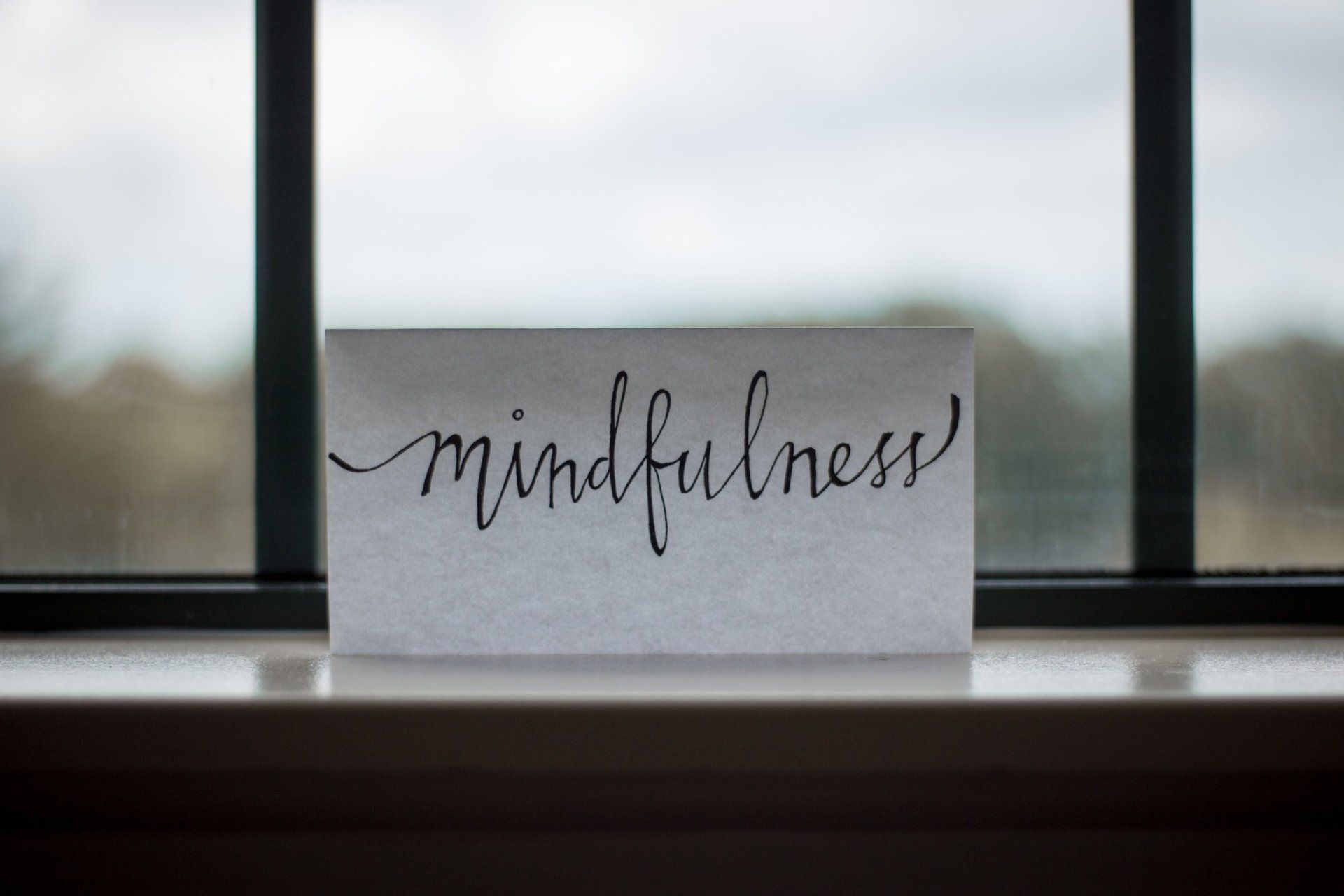How Stress Changes Your Brain
William Klemm, PhD. • July 3, 2020
Stress Hormones Have a Profound Effect on the Body and Brain

People are constantly exposed to stressful situations. These may be physical, like participating in marathons or developing an illness. But stress can also be mental, wherein we become anxious and worried over certain events, existing or anticipated.
Whether physical or mental, stress activates a brain network involving most directly the hypothalamus, the pituitary gland, and the adrenal cortex to release stress hormones. Such hormones include several cortisone-like compounds called glucocorticoids, and the most prominent one in humans is cortisol.
Glucocorticoids have profound effects on both the body and brain. Regulation of glucocorticoids is accomplished by the brain, and learning experiences have profound effects on this control system. Most of what was initially known about glucocorticoids was their effect on the body. I had the great thrill of visiting the pioneer in this field, Hans Selye in his laboratory complex at the University of Montreal.
Effects on the Body
Selye’s research led him to formulate the widely accepted concept of the glucocorticoid system as accounting for a “General Adaptation Syndrome,” which basically explained how the brain and body respond to stress. He discovered that glucocorticoids are “Goldilocks” compounds. That is, a little doesn’t do much, a lot is damaging, and intermediate levels are “just right.”
A moderate amount of cortisol is what is normally released every morning before you awaken. By the way, this is the reason surgeons want to operate early in the morning. This release helps prepare the body for the day’s activities by mobilizing blood glucose, typically by breaking down fat and, if needed, protein stores. Glucose is especially important for the brain, which has huge demands for energy, and which can only burn glucose for energy. Neurons are energized and memory ability is enhanced. Another useful thing cortisol does is to reduce the release of cellular chemicals that cause inflammation.
However, the hormone also inhibits systems that channel resources for growth and reproduction, impairs bone formation, and inhibits the immune system. These problems are why glucocorticoid prescriptions usually start off with a high dose to the blood level up quickly and then the dose is tapered to zero after about four days.
The rub comes when stress is prolonged. Selye discovered that the beneficial adaptation to temporary stress cannot be sustained in chronic stress. The system becomes exhausted and control breaks down. Under chronic stress, body muscle mass decreases because the system has been breaking down proteins in order to generate energy. Inflammation bathes cells in toxic chemicals. Infections increase because the immune system has been compromised. In obese people, glucocorticoid levels cumulatively increase in fat cells, increase fat deposits still further, and increase the likelihood of type 2 diabetes and cardiovascular disease.
Effects on the Brain
In the case of the brain, persistently high levels of glucocorticoid often cause depression. Memory ability is impaired. Brain degeneration and cognitive decline accelerate. Many neurons are actually killed. What I want to stress here is that chronic high levels of cortisone change the neural circuitry that regulates its release. In other words, the brain learns a new way of functioning when constantly bathed in high levels of cortisone.
Effects of Learning
Few people make the connection between glucocorticoid control and learning. The neuronal circuits that control hormone secretion learn from stressful experiences, just as all neurons learn from whatever they experience. What neurons in the cortisol control circuit learn in chronic stress is that the usual controls can’t work anymore.
A typical response to repeated stress of a certain type (for example, constant quarrels with a spouse or repeated job failures) can be habituation. It’s like “tuning out.” Repeated exposure to the same stress teaches the neurons to stop responding as much as usual. Thus, there is less of the benefits that glucocorticoids provide.
At the same time, the hormone control system becomes hypersensitive to other stresses, especially unpredictable or especially severe stresses. The control system learns to overreact to everything other than the stress to which it has habituated. Now, the damaging effect of too much glucocorticoid becomes pervasive, both for the body and brain.
Whether the brain learns stress-coping strategies depends on the conscious override of hyperactive responses to stress, because the neural system that operates our emotions, the limbic system, also regulates the glucocorticoid control system. We can not only reduce excessive glucocorticoid but also teach our brain better ways to deal with stress by doing the following:
-Simplify and organize our life
-Do one thing at a time and finish it
-Find pleasure in the little things
-Learn to have a more positive attitude
-Laugh and be happy
-Suppress anxiety
-Be more rational
-Develop supportive social relations
-Reduce exposure to stressors
Excessive stress is a special problem in children. First, growing up is usually stressful, because of school and complex social experiences. Children are just beginning life's journey of learning how to cope with stress. For that reason, I produced a YouTube video to help school children learn about stress and how to deal with it.
About the Author:
William Klemm, Ph.D., is a senior professor of Neuroscience at Texas A&M University.
Online: Improve Learning and Memory, LinkedIn
To learn more on the author click here: https://www.psychologytoday.com/us/experts/william-r-klemm-phd
References:
Herman, James P. (2013). Neural control of chronic stress adaptation. Frontiers in Behavioral Neuroscience. August 8. Doi: 10.3389/fnbeh.2013.00061
Vogelzangs, N. et al. (2009). Late-life depression, cortisol, and the metabolic syndrome. Am. J. Geriatr. Psychiatry.17(8): 716-21. doi: 10.1097/JGP.0b013e3181aad5d7.

Mindfulness encompasses a variety of definitions although most are similar in concepts. Mindfulness is described as an awareness that arises from purposely paying attention in the present free from any judgements. Mindfulness is a state of awareness of ones emotions, thoughts, and sensations when each occurs. A third definition of mindfulness is a nonjudgmental state of awareness of present experiences. Various interpretations exist dependent on the context in which mindfulness is being examined. For example, mindfulness can be examined in improving emotional regulation and as a coping tool for stress management. Mindfulness is being in the present moment in ones body in a fully conscious state, aware of ones own experiences without judgement or narrative- just being in the moment in the here and now with an acceptance of how things are; being aware of our own thoughts, emotions, sensations without being caught up in them- an outside observer of self with an awareness of the moment. Mindfulness can be used throughout the day when walking, eating, and whenever feeling emotionally “charged” to step back and observe internal experiences. Yoga, meditation, and breathing are a few ways to cultivate mindfulness. Being mindful allows for intentional actions and responses rather than living on autopilot without being aware. The benefits of mindfulness are plentiful, and a regular practice is beneficial for enhancing wellness. Being able to stop and really get into the here and now and out of automatic unconscious living enhances feelings of well-being and an ability to respond more effectively with emotional control. Mindfulness can improve experiences and interpersonal relationships alike. Mindfulness is Intentional Living. Give it a try and see what happens. How do you define mindfulness? How do you cultivate mindfulness in your daily life?

Each day in the United States, an average of 3.1 million COVID-19 vaccines are going into people’s arms. According to an April 9 White House briefing, a quarter of the country's adults are now fully vaccinated. The pandemic is not yet over, but vaccination could soon yield a much more normal life, especially for those who have been vaccinated. The Centers for Disease Control and Prevention, for example, now recommends that fully-vaccinated people can visit with each other indoors and travel without quarantining. But for many, reopening comes with its own set of anxieties. According to APA's Stress in America polling, around half of people say they feel uneasy about readjusting to in-person interaction post-pandemic. Ellen Hendriksen, PhD, a clinical psychologist at Boston University's Center for Anxiety and Related Disorders and author of How to Be Yourself: Quiet Your Inner Critic and Rise Above Social Anxiety , is an expert at clinical strategies for calming anxiety. She spoke to APA about what's driving post-pandemic anxiety and how psychologists can best help. What do you think is driving the anxiety many people are feeling about reopening? Anxiety is driven by uncertainty. There is so much uncertainty right now, from the vaccine roll-out to society reopening to the new normal workplace to the virus and the variants themselves. Every day there is more evidence that vaccines keep us and people around us safe, but there are lingering questions about how long immunity lasts, how susceptible kids are to COVID-19, and when they will get vaccinated. Nobody alive today has ever emerged from a global pandemic into a digital world and navigated this before. We're making it up as we go along, so of course we're anxious. Here at the Center, we have the longest waitlist in our 25-year history. So many people are emerging from the pandemic feeling exhausted, burned out, anxious, or depressed. Collectively, our resources are low, which makes it harder to navigate the layers of uncertainty. How can people handle social anxiety and awkwardness around different levels of comfort as places reopen? The fact that reopening is a moving target makes it difficult to align with other people. You and your bubble might be ready to dine in at a restaurant or get on a plane, but the family next door might have a child who is immunocompromised and is living as they were in January. There are more variables to manage compared with before the pandemic. Plus, social anxiety is driven by avoidance, and we've all been avoiding social interactions for the better part of a year. The fact that we're all rusty is going to make us feel wobbly as we re-enter. It's OK to say we don't know how to do this, and it's OK to ask people what they're comfortable with. That normalizes the uncertainty and awkwardness, and it's quite validating to say, “What are we doing?” or “How does this work?” It can help you feel like you are united with the other person against this larger problem, as opposed to negotiating one against the other. This is a strategy borrowed from couples therapy, where it is often highly effective. How can people feel more comfortable with re-entry? There's one question I've been getting over and over from people who struggle with social anxiety. They'll say, "I did so much work pre-pandemic to get to the point where I could give a presentation or raise my hand in class." They’re worried they’ll be back at square one when they are again in large groups. But social confidence is like a muscle. If you have done work on your social anxiety in the past, that architecture is still there. It will feel awkward at first, but it will come back faster than the first time around. As for feeling comfortable returning to everyday activities, there are dozens of points of re-entry. There will be a first time on public transportation, a first time in someone's house, a first time taking a rideshare. We'll work our way up to large gatherings. Just because you feel rusty or nervous doesn't mean you're doing it wrong. It means you're getting back out there. Your brain will recalibrate with experience. We all need love, support, and community. Studies show that the quality of our relationships predict our future health, happiness, and even longevity, so it's worth it to push ourselves a little to get the interaction we all need, even if we are the most introverted of introverts. What should psychologists keep in mind for helping their clients right now? Psychologists have a big job ahead of us. It may be hard to balance supporting and pushing our clients simultaneously. It’s important to support each individual’s comfort level and choices, but psychologists also need to notice and address life-limiting avoidance. These are anxious, uncertain times, but there is also a sense of hope and renewal. It is an honor that we as psychologists get to play a leading role. Article by Stephanie Pappas from the American Psychological Association (APA)

Imagine you are sitting in a car, and you are driving down a lonely highway. Suddenly, in the middle of nowhere, a warning light goes off. Your oil pressure is very low. If you just ignore it and continue your drive, you run the risk of doing serious damage to your engine. You know you can get a tow, but this is going to take a while. As you are considering your next step, you suddenly remember a trick about how you can short circuit the warning light. This would not change anything about the engine—it would still be starved for oil—but the low-pressure signal would no longer be blinking on your dashboard, and you could ignore it more easily. Here’s the question: Should you do it? Unless you are seriously intoxicated (at which point you shouldn’t be driving at all), you won’t hesitate to say “no” to that impulse. Rightly so. Turning off the light will not do anything for you. The light is just the messenger, and not the problem in itself. Instead, you would be better advised to take in the information and deal with the situation. This is easy and intuitive to understand when it comes to external problems like car maintenance. It’s much more confusing, however, when the problems occur internally. When we are confronted with difficult emotions like anxiety, depression, stress, grief, anger, or loneliness, we are quick to search for the off-button on our emotional dashboard instead of taking in the messages they contain. Make it stop! Give me the wine and cigarettes. Let me cancel this appointment. Engage me on social media. Show me the movies and video games. Do whatever, but just make it stop! This is often our first response when difficult emotions show up: We try to mute the signal. But emotions are not the problem. They are merely messengers. And the messages they carry deserve at least to be heard. They often contain important lessons, and can call us to helpful actions. Often they show us opportunities. What Emotions Can Signal Fear might show us that danger is up ahead, and we better prepare ourselves. Loneliness might urge us to prioritize close relationships. Grief might open us up to what is important and meaningful to us, while calling out for social connection and support. Your dashboard doesn’t need to be covered up. It needs gentle attention. No, the dashboard isn’t everything—you still have a road to see and navigate. When emotions arise, you can ask yourself: “What am I feeling right now?” and “Where can I feel it?” and “What does my emotion ask me to do?” and “What does this suggest I am yearning for?” No one turns their driving over to a dashboard, but questions like these help our emotions play their proper role. If it were just negative emotions, this “turn off the indicator” move would be bad enough, but we are similarly incompetent when it comes to positive emotions. Imagine noticing on your car’s dashboard that your fuel tank is full. Oh, joy! You want it to stay this way, and so you decide to rewire so that the gauge always remains full. And people avoid positive emotions too! When we feel joy, we sometimes focus on how we will feel when it goes away, so we try never opening up to joy at all. That would be like the person who just disconnects the fuel gauge altogether so that she will never be disappointed when the fuel runs out because she never allowed herself to notice it was full in the first place. All of this is self-defeating, and yet it’s exactly what many of us do when we feel happy or sad or anxious or hopeful or depressed or satisfied. We like feeling this way, and never want it to stop, and so we cling onto this pleasant feeling, in the hopes of never losing it. Or we detune so it won’t be noticed when it stops, as if being numb is the definition of happiness. We dislike feeling this way, so we push it away as if feelings are the enemy. Feelings are not just about like and dislike. They are how our past and present impact us. They help train our ability to notice what is present, based on what we’ve experienced in the past. They’re like dashboard gauges that help us adjust to the challenges of our life journey. Emotions are temporary. They aren’t meant to be avoided, nor are they meant to be clung to. They are meant to come and go, flowing through you in their own time. They contain important lessons when things are off, and beautiful rewards when things fall into place. Allowing emotions to be there when they occur, to listen closely to their message, to feel them fully with neither clinging nor needless defense, allows them to serve their proper role. Your emotions are not the problem, so feel fully, embrace the change, move forward, and learn how to drive. For more on the Author: Steven C. Hayes, Ph.D.


